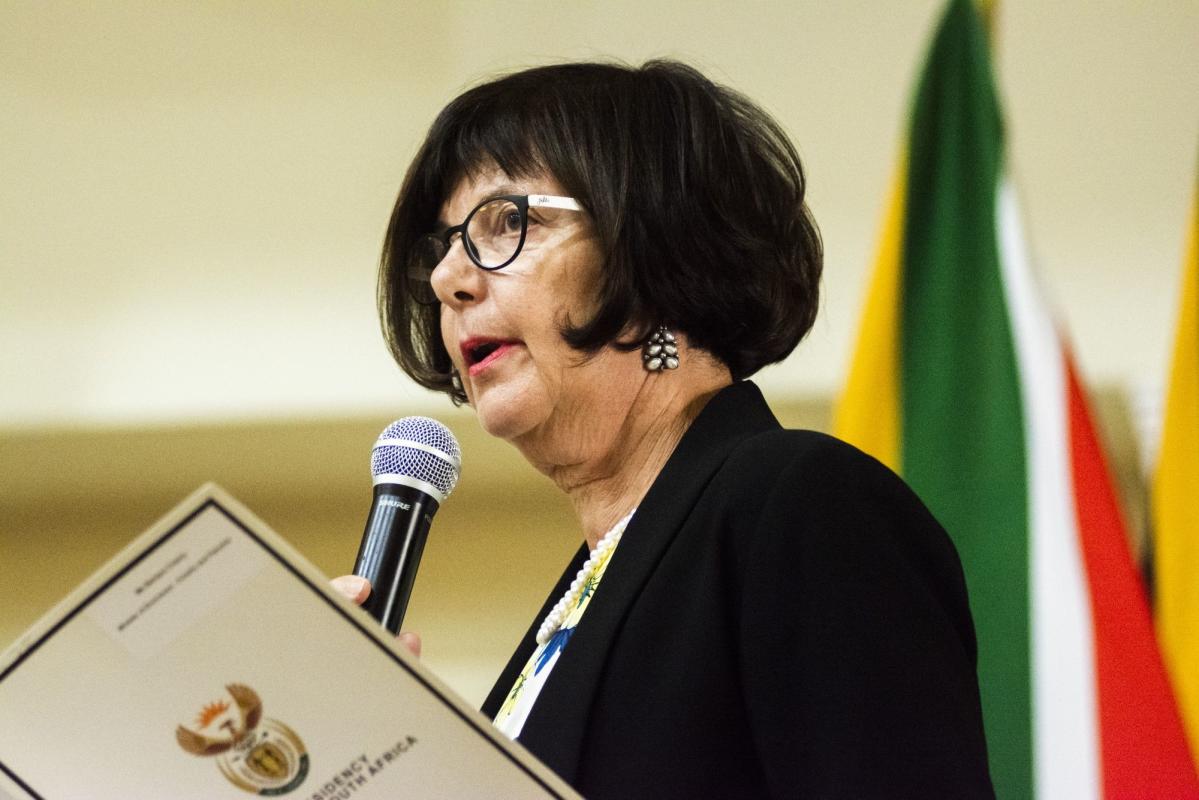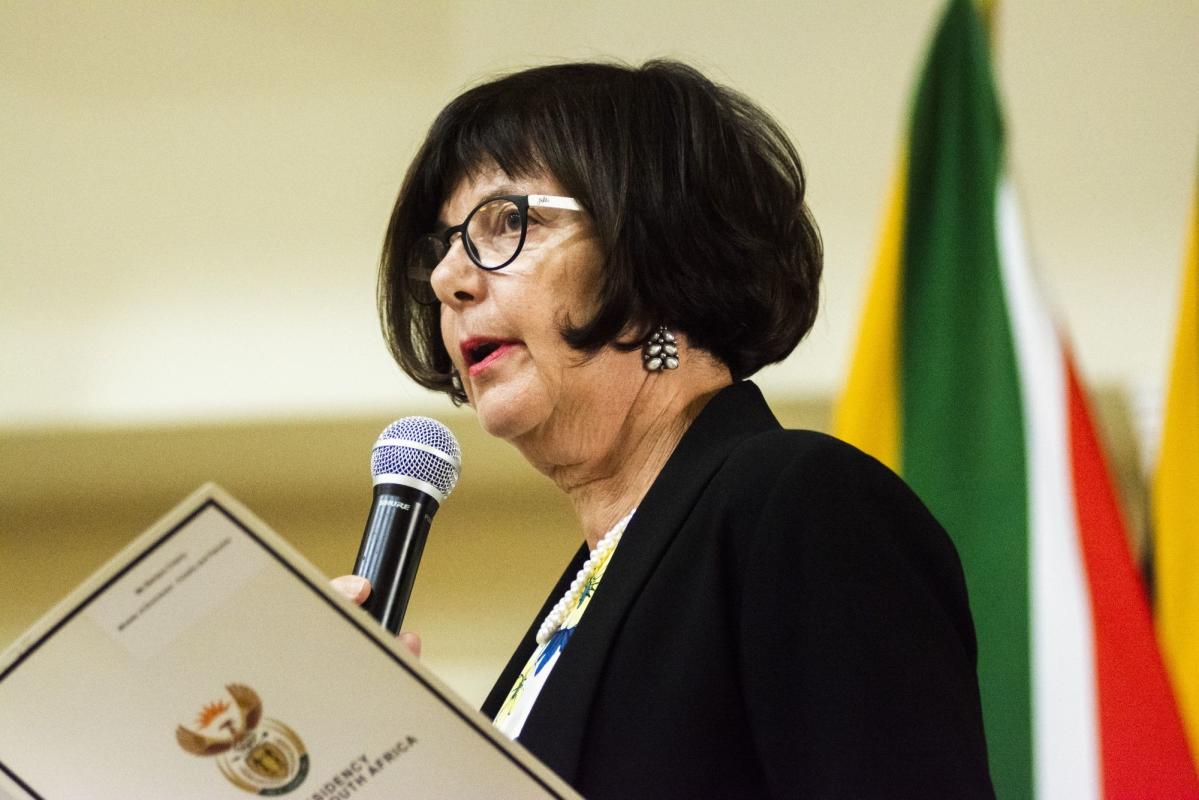
(Bloomberg) — Developing nations expect rich countries to commit more funding to adapt to global warming and a financing mechanism to help them cope with natural disasters when they meet at the COP27 climate summit in November, South African Environment Minister Barbara Creecy said.
Most Read from Bloomberg
Creecy was one of the prominent African voices before the COP26 event in Glasgow last year. She’s demanded affluent nations that have emitted the bulk of the world’s climate-warming gases commit more assistance to those most affected by the impact of rising temperatures.
Wealthy countries need to honor their commitments to provide $100 billion annually to developing nations to help them cope with climate change and boost that amount in the future, Creecy, 64, said in an interview on Tuesday at Bloomberg’s office in Johannesburg. Compensation for floods, droughts and other disasters attributed to climate change must also be worked out, she said.
“This continent is one of the most adversely affected by climate change,” Creecy said. “We are hoping that the dialog around Loss and Damage will be framed in such a way that there will be the establishment of a financing facility,” she said, referring to the term used to highlight the money needed by poorer countries to recover after climate-related disasters.
Africa is at the forefront of developing regions that have contributed little to the carbon emissions that are causing global temperatures to rise, resulting in disasters ranging from heat waves in Europe to droughts in the Horn of Africa and floods in Pakistan and Yemen.
The continent produces only about 4% of global carbon emissions and is ill-equipped to deal with destructive weather events that are increasing in frequency. Earlier this year, the South African city of Durban was hit by the most severe flooding in almost three decades; in the Horn of Africa, Somalia and its neighbors are battling the worst drought in four decades.
Extreme Events
“One extreme event can wipe out a whole city,” Creecy said. “Look at what happened to Beira a few years back,” she said, referring to Cyclone Idai, which destroyed 90% of homes in the Mozambican port city in 2019.
Delegates at the summit will need to determine whether compensation for Loss and Damage is provided on a sovereign, sub-national or non-governmental basis, she said.
“Today there’s no fund that supports vulnerable countries to face situations linked to climate change like flooding, unseasonal rains,” Senegalese Environment Minister Abdou Karim Sall said at a conference in the West African nation’s capital, Dakar, on Thursday “We need a fund for the most vulnerable countries when these events occur. Those who pollute need to open their pockets.”
John Kerry, the US’s special presidential envoy for climate, said his country will press for progress on the issue although it may take until 2024.
“We are committed to taking additional steps on Loss and Damage,” he said in a speech in Dakar, Senegal on Thursday.
Developing nations want the talks, which will take place in Sharm el-Sheikh in Egypt in November, to also focus on financial assistance post-2025 with the $100 billion pledged serving as a “floor,” Creecy said. In that year, an agreement to provide $100 billion per annum, which hasn’t been met, will expire.
‘Lot of Silence’
“We are now moving toward the post-2025 environment and there’s a lot of silence around that,” she said. “The special needs and circumstances of the African continent” must be considered, she said in a reference to the need for funds and the lack of development on the continent.
Creecy has overseen the environment portfolio in South Africa at a time when the country has committed to ambitious carbon-emission reduction targets and a transition away from the reliance on coal to produce power.
The continent needs more money for adaptation, the strengthening of infrastructure and the building of resilience to drought and other weather events, than mitigation, which covers the construction of renewable-energy plants, Creecy said. Africa wants half of all climate finance to go toward adaptation, according to the minister.
“We understand that not all finance is going to come in the form of grants or aid” with energy plants generating revenue that could pay off finance over time, she said. Still, “many countries in Africa don’t have a large public sector budget. So there is a need for grant financing to deal with adaptation issues.”
In South Africa alone, the west of the country is expected to get drier and the east wetter, according to Creecy. A more than 3,000-kilometer (1,864-mile) coastline will likely be hit by storm surges and rising seas.
“Clearly the adaptation issues confronting our country are significant,” Creecy said.
(Updates with comments by US Presidential Climate Envoy John Kerry in fourth and fifth paragraphs below first sub-head)
Most Read from Bloomberg Businessweek
©2022 Bloomberg L.P.




